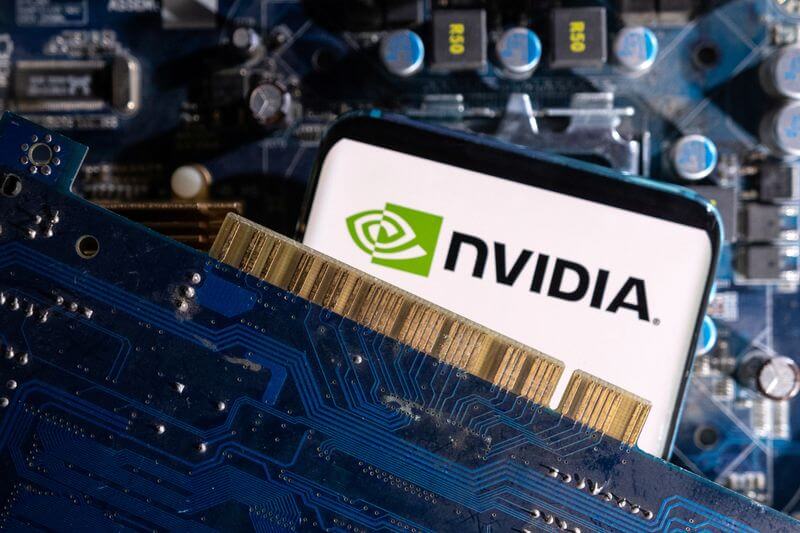On August 23, 2023, Nvidia (NVDA.O) surpassed all expectations with its quarterly revenue forecast, revealing an extraordinary performance driven by the ongoing artificial intelligence (AI) boom that has ignited an unprecedented demand for its cutting-edge chips. The company also made headlines by announcing a substantial stock buyback plan amounting to $25 billion, which sent its stock soaring in after-hours trading.
The remarkable revenue forecast exceeded projections by billions of dollars, providing compelling evidence that the surge in generative AI technologies, which emulate human-like reading and writing capabilities, is still gaining momentum. This surge is almost entirely fueled by Nvidia’s chips, indicating a robust and enduring market for its products.
What further fueled investor enthusiasm was Nvidia’s decision to initiate a $25 billion share repurchase program. This strategic move comes in the wake of the company’s stock price already tripling over the course of the year, propelling Nvidia to become the first-ever trillion-dollar chip enterprise. Investors appear to be placing their bets on Nvidia to emerge as the primary beneficiary of the ongoing AI revolution.
Notably, analysts have gauged that the demand for Nvidia’s highly coveted AI chips is outstripping supply by a significant margin, estimated to be at least 50%. This supply-demand gap is anticipated to persist for several quarters, underscoring the robust market appetite for Nvidia’s offerings.
Jensen Huang, Nvidia’s CEO, highlighted the global trend of companies transitioning from general-purpose computing to accelerated computing and generative AI. This paradigm shift is a testament to the transformative potential of Nvidia’s technological innovations.
While Nvidia is widely recognized for its graphics processing units (GPUs), its comprehensive AI systems emerged as the primary driver of its quarter’s growth, as emphasized by its executives. Beyond chips, Nvidia designs complete AI machines, incorporating memory chips from other suppliers and a multitude of other components. This holistic approach to AI solutions contributes substantially to the company’s success.
The positive trajectory of Nvidia’s performance had a ripple effect across the tech sector. Other major players such as Microsoft, Meta Platforms, and Palantir Technologies witnessed significant gains in their share prices during extended trading after Nvidia’s report was released.
According to Daniel Ives, an analyst at Wedbush Securities, the results marked a pivotal moment with far-reaching implications for the tech industry throughout the year. This sentiment underscores the influential role that Nvidia is playing in shaping the tech landscape.
The global demand for Nvidia’s chips transcends boundaries, with AI startups and major cloud services providers like Microsoft vying to secure Nvidia’s products. Moreover, there is a surge in demand from China, where companies are rushing to place orders for Nvidia chips in anticipation of potential U.S. export restrictions.
Addressing concerns about potential export restrictions, Nvidia’s Chief Financial Officer, Colette Kress, reassured analysts that such restrictions would not immediately impact the company’s results. However, she pointed out that such controls could result in a lasting loss of opportunity for the U.S. industry to compete and lead in the vast Chinese market.
Looking ahead, Nvidia forecasts third-quarter revenue of approximately $16 billion, with a margin of error of 2%. This projection significantly outpaces the average analyst expectation of $12.61 billion.
In the second quarter, adjusted revenue amounted to $13.51 billion, surpassing estimates of $11.22 billion. A standout performer was Nvidia’s data center business, which saw a staggering 141% rise in revenue to $10.32 billion, comfortably exceeding analyst estimates.
While Nvidia’s gaming segment revenue climbed to $2.49 billion, beating analyst estimates of $2.4 billion, the company’s AI systems emerged as the true cornerstone of its growth trajectory.
Despite a challenging landscape with supply chain obstacles, Nvidia remains committed to expanding its production capacity. The company reported a substantial increase in inventory commitments, reflecting its proactive approach to secure the necessary supplies for its data center chips.
Analysts predict that Nvidia’s revenue from the data center segment could reach as high as $40 billion for its fiscal year 2025. This projection is underpinned by Nvidia’s commanding position in AI chips and related technologies, including the software required to leverage the full potential of these chips in applications such as ChatGPT.
While competitors like Advanced Micro Devices (AMD.O) are expected to gain some market share from Nvidia in the AI chip sector, Nvidia’s software ecosystem, especially its CUDA platform, holds a significant advantage over competitors like ROCm.
In a period when sales of chips for personal computers and data centers have faced challenges, AI stands out as a beacon of growth. Cloud computing businesses and startups are increasingly embracing AI-related chips from Nvidia and other industry players, signaling a shift in spending toward AI-oriented technologies.
All in all, Nvidia’s remarkable performance not only underscores its leadership in harnessing the AI momentum but also highlights the pivotal role it plays in driving technological innovation. As the AI landscape continues to evolve, Nvidia’s innovative solutions and strategic initiatives are poised to shape the trajectory of the tech industry in the months and years to come.





